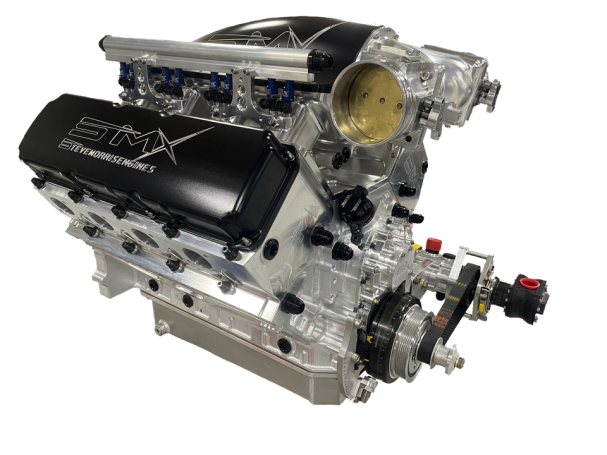The Impact of Ingenious Engine Technologies on Energy Efficiency and Environmental Sustainability
In the world of transportation and industrial machinery, the constant pursuit for improved energy performance and reduced environmental effect has led to substantial developments in engine innovations. From the steady shift towards electrical and hybrid systems to the assimilation of turbocharging for boosted effectiveness, the landscape of engines is advancing swiftly.
Advancement of Engine Technologies
The development of engine innovations over the decades has been noted by constant advancement and improvement in search of improved efficiency and effectiveness. From the early days of internal burning engines to the innovative crossbreed and electrical powertrains of today, the advancement of engine innovations has actually been driven by an unrelenting mission for improved gas effectiveness and reduced emissions.
One substantial landmark in this development was the advancement of turbocharging and straight shot systems, which significantly improved engine power outcome while enhancing gas efficiency. These technologies permitted for smaller, extra lightweight engines that could provide the performance of bigger ones without compromising on efficiency.
Furthermore, improvements in products scientific research have actually resulted in the extensive fostering of light-weight materials such as light weight aluminum and carbon fiber in engine building and construction. This has not only decreased total vehicle weight however has actually likewise boosted engine efficiency by decreasing power losses related to inertia and friction.
Advantages of Electric and Hybrid Equipments
With the expanding focus on sustainability and energy performance, what advantages do electrical and hybrid systems offer in the world of engine technologies? Furthermore, electrical and hybrid systems are extra energy-efficient, converting a greater percentage of kept power into propulsion compared to traditional engines. Hybrid systems integrate the advantages of electric propulsion with the flexibility of a combustion engine, providing expanded lowering and driving varieties range anxiety for consumers transitioning to electric vehicles.
Turbocharging for Improved Effectiveness
Turbocharging jobs by making use of a wind turbine to compel even more air into the combustion chamber, allowing for far better gas burning and increased power output without a significant rise in engine dimension. By taking full advantage of the performance of the combustion process, turbocharged engines can accomplish better gas economy and minimized exhausts, adding to ecological sustainability. The extensive fostering of turbocharged engines in both gas and diesel lorries shows their effectiveness in balancing performance, effectiveness, and ecological influence.
Utilizing Alternate Fuels
Harnessing alternative fuels provides a promising opportunity for reducing carbon emissions and branching out the energy sources utilized in transportation. As the world makes every effort to combat climate modification and decrease dependency on fossil gas, alternative gas have obtained substantial focus for their prospective environmental and economic advantages.
Biofuels, such as ethanol and biodiesel, are originated from eco-friendly sources like algae, corn, and sugarcane, supplying a cleaner burning choice to conventional gas and diesel. These fuels can be blended with existing oil gas or made use of in committed engines, supplying a pathway to reduced greenhouse gas exhausts and enhance air quality.
Furthermore, hydrogen fuel cells have emerged as a promising modern technology for zero-emission transportation. engines for africa. By transforming hydrogen gas into electricity to power electric motors, gas cell cars produce just water vapor as a result, getting rid of damaging tailpipe emissions entirely
In enhancement to decreasing carbon discharges, alternate gas can likewise improve power safety and security by expanding the gas mix and lowering reliance on imported oil. Embracing alternate fuels in transportation is a vital action in the direction of accomplishing a more sustainable and ecologically pleasant future.

Future potential customers and ecological advantages
The ecological advantages of different fuels and their capacity for long-lasting sustainability are key considerations in the shift towards cleaner power sources. Different fuels, such as biofuels, hydrogen, and power, deal significant environmental advantages contrasted to conventional fossil fuels. These gas create lower levels of greenhouse gas discharges, reducing air pollution and mitigating environment modification influences. Additionally, different gas can aid branch out power resources, enhancing power security and lowering reliance on finite sources.
The other future leads for different gas in the transportation sector are promising. Developments in modern technology remain to improve the efficiency and price of alternative fuel vehicles, making them more accessible to consumers. Federal governments worldwide are likewise executing policies to incentivize the adoption of alternative fuels, further driving their growth. As research and development initiatives increase, the possibility for also greener and extra lasting fuel alternatives increases, leading the means for a cleaner and a lot more ecologically pleasant transportation market. By accepting alternative fuels and innovative innovations, the path towards a more lasting future ends up being progressively achievable.

Conclusion
In final thought, innovative engine innovations have actually played a critical role in improving energy effectiveness and promoting ecological sustainability. The evolution of engine modern technologies, adoption of hybrid and electrical systems, usage of turbocharging, and expedition of different fuels have all added to decreasing exhausts and enhancing efficiency.
In the world of transport and industrial equipment, the continual mission for boosted energy effectiveness and lowered ecological effect has actually led to significant improvements in engine innovations. Turbocharging works by utilizing additional reading a generator to compel more air into the burning chamber, permitting for better fuel combustion and boosted power result without a significant boost in engine dimension. By making the most of the performance of the burning procedure, turbocharged engines can attain better gas economy and decreased discharges, contributing to environmental sustainability. Different fuels, such as biofuels, look at this website hydrogen, and electrical power, offer considerable ecological benefits compared to traditional fossil fuels. The evolution of engine modern technologies, fostering of electric and hybrid systems, usage of turbocharging, and exploration of different fuels have all added to boosting and minimizing discharges effectiveness.